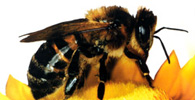Cross-Pollinating DBpedia and Freebase
Published 15 years ago by James Simmons
 Now that Freebase is available as Linked Data a big question that comes to mind is whether these two major projects will move to assimilate one another. DBpedia and Freebase – two endeavors primarily focused on curating unstructured and semi-structured data about everything and releasing it back into the wild (with structure) – get the bulk of their information from Wikipedia, so the amount of topical overlap is assumed to be extremely high. DBpedia gains new information when it extracts data from the latest Wikipedia dump, whereas Freebase, in addition to Wikipedia extractions, gains new information through its userbase of editors.
Now that Freebase is available as Linked Data a big question that comes to mind is whether these two major projects will move to assimilate one another. DBpedia and Freebase – two endeavors primarily focused on curating unstructured and semi-structured data about everything and releasing it back into the wild (with structure) – get the bulk of their information from Wikipedia, so the amount of topical overlap is assumed to be extremely high. DBpedia gains new information when it extracts data from the latest Wikipedia dump, whereas Freebase, in addition to Wikipedia extractions, gains new information through its userbase of editors.



Recently Commented Blog Entries